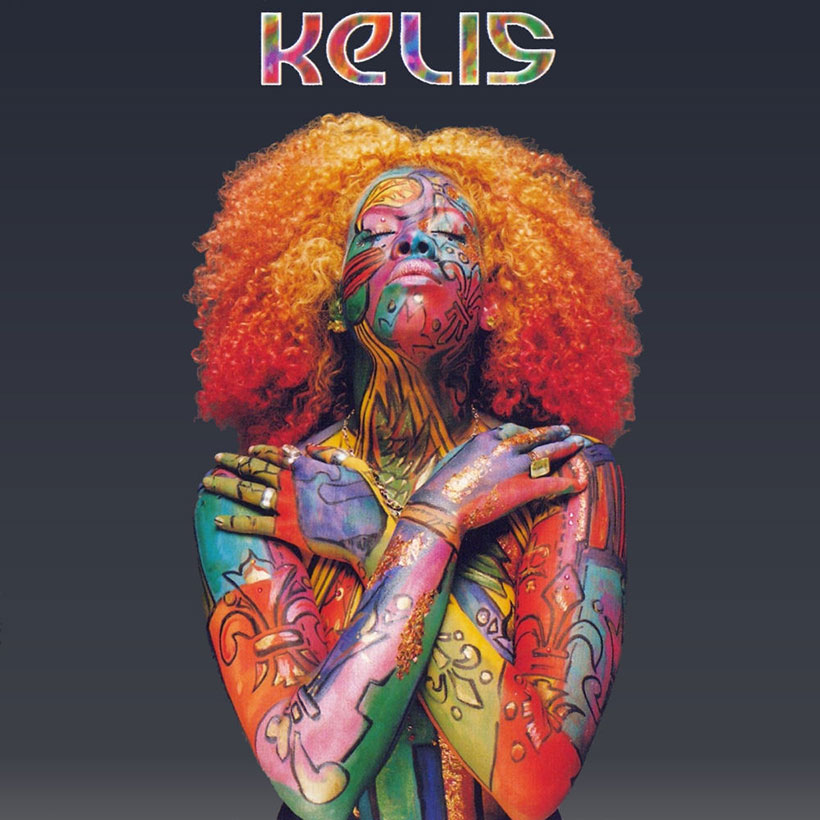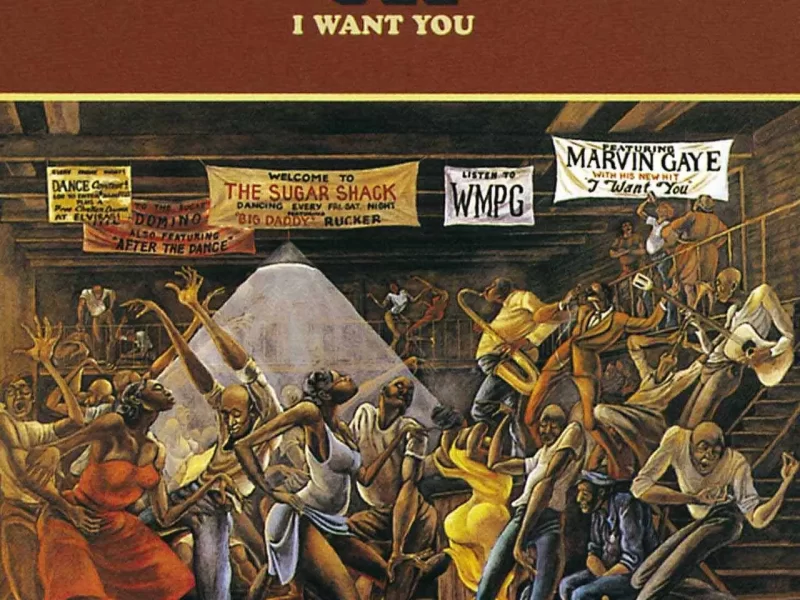Released on December 7, 1999, Kelis’ Kaleidoscope arrived just as the millennium was coming to a close. A coming-of-age tale set to thumping bass and wheezing synths, it eschewed Y2K hysteria for an exploration of love – the love of others, love of self, love of experience – and how to learn from all of it.
Listen to Kaleidoscope on Apple Music and Spotify.
Life and love seemed simpler…
Technology was just a few years away from impacting our lives, jobs, friendships, and romantic relationships in ways it never had before. That’s not to say its specter isn’t present on Kaleidoscope, but the late 90s was still a time of beepers, pagers, and faxes. Life and love seemed simpler without the omnipresence of technology.
Over the album’s 14 tracks, Kelis sings about playgrounds, diaries, movie dates, and aliens. Song titles like “Game Show,” “Suspended,” and “Roller Rink” are immediately evocative, sometimes with dual meanings that are clearly intentional (“Suspension” is about the weightless feeling love gives us, not about getting punished at school).
Kelis herself was 20 at the time of Kaleidoscope’s release, so most of her formative years were spent in the 80s and 90s. At times, the album feels like an amalgamation of classic 90s pop culture tropes; that said, pop culture shapes our perception of life just as much as anything else – even love. And two of the album’s singles, “Caught Out There” and “Get Along With You,” both speak to the potential damage love can bring into our lives.
A musical and emotional spectrum
In an album full of musical vignettes, “Game Show” offers the most straightforward narrative, but, musically, its jazz-tinged arrangement and playground melody is anything but. Over fuzzy, upbeat keys, Kelis sings about the trials and tribulations that make her life feel like a game show.
Fans latched onto her primal declaration, “I hate you so much right now,” from “Caught Out There,” but Kaleidoscope, helmed by The Neptunes, was more nuanced in both styles and moods. “Get Along With You” takes a traditional R&B ballad and retools it for the new millennium, while the genre-bending “Mars” explores all kinds of rhythmic and melodic possibilities; it’s a Halloween sitcom special meets Orson Wells’ War Of The Worlds, as Kelis sings about an intergalactic mission of love.
While “Roller Rink” sounds like it might be about adolescents holding hands under neon lights, co-producer Pharrell Williams begins the song by talking about sex on a spaceship. The “space” theme is a recurring thread throughout Kaleidoscope, reminding us what a strange and endless trip we’re really on.
A musical marriage
Kaleidoscope was Kelis’ debut album, but it was also a Neptunes brainchild, through and through. But while some artists can find themselves overshadowed by distinctive production styles, Kelis ensured that her personality shone through. And the relationship was mutually beneficial: earlier in the decade, The Neptunes had produced hits for Jay-Z, Blackstreet, and Mase, but it was through working for Kelis and Clipse that they came into their own as the era’s hottest producers.
Kaleidoscope made household names of Kelis and The Neptunes, particularly overseas, where the singer wasn’t constrained by genre labelling, finding herself celebrated for her musical eclecticism. “I was never an R&B artist. People coined me one but that’s because, especially if you’re in the States, if you’re black and you sing, then you’re R&B,” the singer told The Guardian in 2014.
Williams and Hugo not only handled production on the album, but took on instrumentation duties as well, playing all of the instruments on live themselves. Their work signaled a new shift in R&B, making it clear that, with Kelis up front, they were coming for the Timbaland/Missy Elliott crown.
A mission statement
Kaleidoscope was more than debut; it was a mission statement. Kelis was bringing back the kind of psychedelic spirituality, Afrofutrism-meets-Stevie Wonder, conscious-raising music to pop-R&B, elevating it to a higher plane.
There are moments on Kaleidoscope when you hear the early versions of certain sounds that would dominate the charts for decades to come. From early Pusha T appearances to Star Trak name drops and Pharrell emerging as a rapper in his own right, Kaleidoscope documents a bygone era.
Because the late 90s existed in such a specific pocket of time – right before a technological revolution – it’s a decade that’s especially ripe for nostalgia. It feels distant and innocent, but, at the same time, like it only just happened. And that’s kind of how a kaleidoscope works: it’s a device that’s used to create a seemingly endless sequence of patterns with light and color, making it appear as if anything is possible. That’s how our memories shape our lives; a love that happened years ago can feel like it was just yesterday. Kaleidoscope is all about the power of moments and how quickly they can blend into one another.
Kaleidoscope has been reissued on 2LP orange vinyl. Buy it here.





